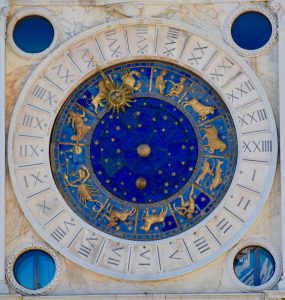Stress
Five Transformative Health Benefits Acupuncture Provides for Overall Health

As more insurance plans and more allied health practitioners begin to embrace what has traditionally been known as “alternative medicine” treatments, acupuncture has enjoyed a surge in popularity with potential patients desperate for a drug-free alternative for their overall health and wellness.
Acupuncture, an ancient practice rooted in Traditional Chinese Medicine (TCM), has been gaining traction in modern healthcare as a holistic approach to promoting physical, emotional, and mental wellbeing. While skeptics may question its efficacy, a growing body of scientific research supports acupuncture’s myriad health benefits. From pain relief to stress reduction, this time-honored therapy offers a natural and effective way to enhance overall health. continue reading
When is Stress Actually to Blame?
 I feel like in the 20th century no one was talking about stress as an etiology for disease. Possibly I am guilty of generational egocentricity, having barely reached the drinking age by 2000. Thankfully, I had very few young friends discussing ailments and how they came about.
I feel like in the 20th century no one was talking about stress as an etiology for disease. Possibly I am guilty of generational egocentricity, having barely reached the drinking age by 2000. Thankfully, I had very few young friends discussing ailments and how they came about.
Still, I think it is more referenced, even over-diagnosed nowadays, especially by western doctors any time they cannot explain a symptom or its etiology, shrugging shoulders and throwing their arms up, citing the most probable suspect. “Might just be stress,” they say, which for its listener might feel an implication that their complaint is a fabrication of the mind, if not something that can only be resolved or improved once everything in life is good, or they achieve spiritual enlightenment, neither of which are in the cards for most of us this go around.
While I’m all for patients having agency over their own health, things happen that are out of our control—an accident, post-viral symptoms, genetic predispositions, or just life—when it helps to have a knowledgeable clinician to provide valuable insight and hopefully effective treatment.
In Chinese Medicine stress is said to have a drying effect on the body. This is why when people “stress eat” they crave “damp-causing foods,” such as cheese, bread, and sugar.
Unfortunately, such foods do not generate healthy fluids, nor is stress-induced dryness the kind that will drain pathogenic dampness. Instead, the drying effect of stress refers to the depletion of mucosal organ fluids, beneficial stomach fluids (anyone get acid reflux or diarrhea when over-stressed?), and/or those that lubricate our orifices, gyri and sulci of the brain. Although hydration is advisable, drinking water cannot replace these fluids.
In early stages or mild cases, the best way I know to restore such fluids is through rest, sleep, and the consumption of eggs, bone broths, or red meats. For the rest of us herbal medicine is necessary. Herbs such as ginseng or licorice for the gut, puerariae root for the head and neck, ophiopogonis for the intestines, atractylodes for the intestines, trichosanthis for the orifices, or rehmanniae for the brain and blood. Always consult a (real) herbalist before taking.
Although extensive periods of stress are never helpful, it is important clinically, to thoughtfully discern between when stress is, and when it is not the primary cause of a particular symptom. Almost everyone in modern society has at least moderate degrees of stress, yet everyone is walking around in enormously different stages of health or discomfort.
From our perspective, when stress directly brings up a symptom, it informs us that dryness is probably at its root of imbalance. The body couldn’t tolerate any further depletion of fluids. Then, and only then, is when stress is to blame—not to mention the fact that most disease is multi-factorial. Systemic dryness is likely only part of the picture, which is why many people “do all the right things”—exercise, meditation, good sleep hygiene—but still experience symptoms. Because it is almost never “just stress.”
Can It Be All Stress?
 “It’s just stress,” is a diagnostic platitude commonly heard by patients when relaying either to friends or their doctor about some odd or non-immediately fatal symptom that lacks any conventional, empirical treatment.
“It’s just stress,” is a diagnostic platitude commonly heard by patients when relaying either to friends or their doctor about some odd or non-immediately fatal symptom that lacks any conventional, empirical treatment.
It would be an over-simplification to label this stock response as wholly or always dismissive—in my opinion it is more often a result of the listeners’ lack of knowledge of physiological nuances, disease spectrums, and of course the entire internal paradigm of Chinese Medicine.
The mind is en vogue in the past generation, so much so that people jump at the opportunity to sound mentally acute even while being mentally lazy in its default citation as a scapegoat for everything, the way fat was in the 20th century or sugar is now. It makes them feel aware of the more mysterious, all while maintaining an orthodox adherence to conventional medicine’s present understanding of things. I picture people picturing themselves as if sipping a small cup of whiskey wearing Coke bottle glasses and a bowtie in their reply: “It’s (probably just stress),” then putting their cup back down and nodding their head as if they’d just cured HIV.
While no one could dispute that stress is an important variable in the etiology of most illnesses, it is also just that: One important variable. So why when we have curious symptoms that conventional medicine has no explanation or treatment for do they never say: “It’s just diet?” “It’s just your sleep hygiene?” Or: “It’s just your exercise routine that needs refinement or reduction, or simply needs to exist?”
Why when one person experiences incredible stress does it show up as digestive issues, while for another it does as insomnia, and another as hives all over their skin? “People are different,” idiots might shrug and say, which isn’t untrue, but is an egregious oversimplification. People are different, which means if we each consumed diets and partook in exercises suitable to our own individual constitutions, we’d likely be able to ward off the ill effects of short or even medium-term life stressors.
If stress causes you low back or neck pain we know there is “dampness trapped on the exterior layer of the body.” If stress causes stomach issues we know there are already stomach issues, since most or many people can endure stress without such symptoms. If stress causes headaches or migraines then there was likely already some dysregulation of cerebrovascular flow in particular neurological pathways
In this way stress can be invaluably informative, by tipping our internal scale and showing us where we are weak, where in our bodies we are retaining pathogenic fluids, so we can properly treat, instead of dismissing it. Because odd, inexplicable symptoms are never nothing. They are not “all in our minds” or insignificant. Instead, from a Chinese Medical perspective, sadly they are potential coming attractions—foreshadows of diagnoses to come.
I apologize if this sounds dark or ominous. My intention is the opposite, to offer optimism and agency to those of us who have been repeatedly implied to that we must resolve all of our internal turmoil in order to be free of a particular problem. While I am all for a daily practice of meditation, prayer, community, and anything else that reduces stress, we should be able to also rely on medical providers to step in with something more to offer during periods where our practice of psycho-emotional work and discipline just is not enough.
Five Benefits of Consistent Acupuncture Treatments

In a nutshell, traditional acupuncture, also known as Traditional Chinese Medicine or TCM, works under the belief that the body is controlled by a flow of energy called qi traveling through pathways in the body that are called meridians. Acupuncturists believe that when these pathways become blocked and the energy can’t flow freely, various health problems begin to appear. continue reading
Mercury Retrograde! The Fall 2022 Version
 Just a friendly heads up, fair warning, from your local subscriber to (almost) all paradigms off the beaten path and/or beyond the five human senses: Another Mercury retrograde is upon us, to officially begin this coming Friday, September 9th; but for those of us such as myself, born under a Mercurial sign, the effects of its “shadow” and prior “pre-shadow” phases have already reared their heads around many facets of life. This will continue for the rest of September.
Just a friendly heads up, fair warning, from your local subscriber to (almost) all paradigms off the beaten path and/or beyond the five human senses: Another Mercury retrograde is upon us, to officially begin this coming Friday, September 9th; but for those of us such as myself, born under a Mercurial sign, the effects of its “shadow” and prior “pre-shadow” phases have already reared their heads around many facets of life. This will continue for the rest of September.
When the planet Mercury is in retrograde the things most known to suffer are travel, communication, and technology—recall October, 2021, when all of Facebook and Instagram collapsed and blacked out for a day—though my personal experience is just an overriding theme of carelessness and misfortune that can lead to a whole litany of problems.
For example, while mercury is retrograde I am more likely to roll an ankle, drop and break a glass, lose my wallet, or tell someone to “F off!” The latter of which I’m confident has become less frequent with age and maturity (and the astrological awareness to, take a breath—it’s just mercury)…
This weekend my brother witnessed a road rage incident on the upper east side where two drivers got so angry at one another that they took turns ramming each other’s cars as if in a video game until finally jumping a curb resulting in a collision on 2nd Avenue. Fortunately, no one was hurt. And while confrontations obviously happen year-round, I couldn’t help but flag such an extraordinary instance as partially exacerbated by the stars’ misalignment, hypothesizing: “If only one of the two combatants was more astrologically aware, he might have taken a breath and turned the other cheek (or wheel as it were) and avoided the legal, financial, and medical issues caused. For the month to come, try your best to pause before reacting.
For my part thus far, we’ve had last minute babysitter cancellations, patients arriving later than ever (you’re all forgiven!), my bed frame broke for no reason other than wear and tear, our freight elevator was down all week, as is our cable at home (grateful it happened after Serena’s match). When mercury is retrograde we should do our best to just go with the flow of such conditions, and avoid making any major life decisions or signing contracts until our perception—that is our communication with the outside world is more lucid.
The nice thing about mercury retrogrades is they are generally times when people from our past—hopefully not detested ex’es—either randomly reach out to connect or run into us randomly in public. Such “coincidences” are common, which can be fun and offer somewhat of a silver lining to these otherwise frustrating, chaotic few months of each year.
Of course, astrology is only an interest of mine, not remotely my field of expertise. To dive deeper I recommend The Inner Sky by Steven Forrest, or at least this ASTROSTYLE ARTICLE on how to mentally prepare and approach this upcoming period. Alternatively, alternative medicine is another useful coping tool for the stress that comes with astrological storms. Even if just harmonizing treatments, down-regulating our nervous system, or releasing our back and shoulder muscles, outside support is always advisable, and available. Please just give yourself an extra five minutes to get to your appointment 😊


